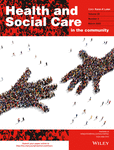Utilisation of social determinants of health to improve education among youth in Dominican baseball academies
Abstract
Traditional youth baseball academies in the Dominican Republic, along with the potential of a major league baseball contract, are viewed by many parents as the best option to pull a child and family out of poverty. These academies advance the child's athletic abilities yet fail to provide formal education. Unfortunately, 97% of athletes leave the academy without a contract and are left with little education, job skills, or stable job prospects which ultimately returns them to the life of poverty they had hoped to escape through baseball. A faith-based organisation in Santiago, Dominican Republic, offers a high-level baseball academy inclusive of supportive academics. The purpose of this research project was to describe the perspectives of stakeholders involved with the faith-based missional organisation to discern the components and effectiveness of the efforts to support student growth in and beyond athletic abilities. Utilising a community-based research approach with a social determinants of health theoretical framework, researchers held in-country focus group discussions (Spring, 2019) with the organisation's stakeholders (coaches, parents, community leaders, N = 33). Researchers collaboratively coded data, triangulating within and across sources, to identify themes. Qualitative data suggest stakeholders within this organisation perceive the academy as instrumental in keeping kids off the streets, encouraging self-discipline in sports, church and school. The stakeholders perceived the inclusion of academic expectations into the sports academies improved long-term educational and economic success for the athletes. Inclusion of academic requirements within sports academies may improve long-term outcomes of youth in the Dominican Republic.
CONFLICT OF INTEREST
Authors have no conflict of interest to report.




